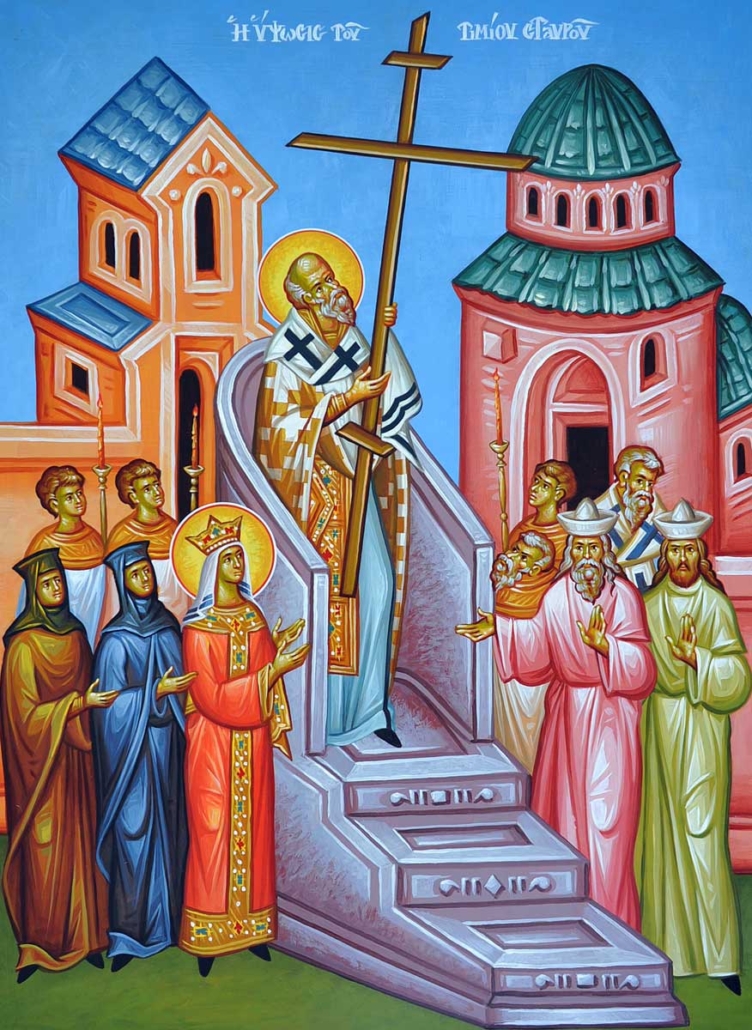The Exaltation of the Holy Cross
On September 14th, the Greek Orthodox Church, alongside the broader Eastern Orthodox churches and the Catholic Church, commemorate the Exaltation of the Holy Cross; also called the Exaltation of the Precious and Life-Giving Cross or the Elevation of the Cross. The feast is tied back to Saint Helen and her son Saint Constantine.

Saint Constantine, also known as Emperor Constantine at the time, had successfully unified the Roman Empire; spreading the Christian faith across its wide boundaries. Under his rule, he sent his mother, Saint Helen, to Jerusalem where he tasked her with locating the Holy Sepulchre and the Holy Cross. In Jerusalem, Saint Helen followed the stories told to her by the faithful, using them to guide her to where she believed she would find the location of the Cross. In 326 AD Saint Helen was successful in her search, locating not only the Holy Cross but also the two crosses upon which the thieves were crucified next to Jesus in Golgotha. It was unclear to Saint Helen, however, which cross belonged to whom. The True Cross of Christ was identified by Patriarch Macarius of Jerusalem when an ill woman touched the cross and was healed.
Today, the faithful attend service to honour the Holy Cross and the eternal life of Christ. The feast is commemorated with the reading of the Divine Liturgy of Saint John Chrysostom on September 14 and a Great Vespers on the evening of September 13. During the service on September 14, a procession occurs with the Priest holding a tray upon which is a cross and basil branches, which represent the basil plants that were growing at the site of the Holy Cross. At the end of the service, parishioners are given basil by the Priest after they venerate the cross.
September 14 is also a major name-day in the Greek Orthodox Church, commemorating those named Stavroula and Stavros, two popular Greek names derived from the Greek word for cross: ‘stavro’. Those who commemorate this day partake in a strict fast, meaning that the faithful refrain from consuming fish, eggs, wine, meat, dairy, or oil. Furthermore, the day is observed as a day of repentance for the faithful.